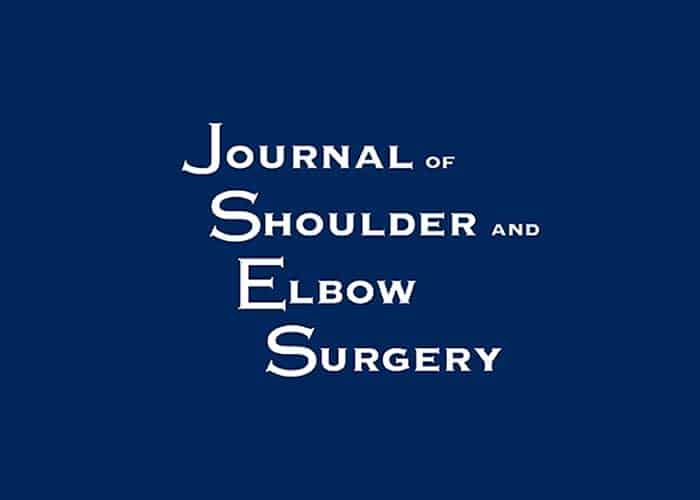
Authors:
Peter J. Millett, MD, MSc, Brandon T. Goldenberg, BA, Brian T. Samuelsen, MD, MBA, James D. Spratt, MD, MS, and Grant J. Dornan, MS
Abstract:
Background
Concerns exist regarding the complication rates and implant survivorship of reverse total shoulder arthroplasty (RTSA) in younger patients.
Methods
A systematic review of the literature regarding the existing evidence on RTSA in patients younger than 65 years was performed using the CENTRAL (Cochrane Central Register of Controlled Trials), PubMed, and Embase databases on June 9, 2019. Articles published between 1995 and 2019 with combinations of the following keywords were identified: "reverse shoulder arthroplasty" and "65," "60," and/or "55." Complications, reoperations, and revisions were recorded. Reoperation-free survival and implant survival rates were grouped at 2, 5, and 10 years. Range of motion and clinical outcomes, along with postoperative radiographic results, were recorded.
Results
Data from 7 studies with a total of 286 shoulders were obtained for quantitative analysis. The mean patient age was 58.4 years (mean age range, 48.9-60.4 years), and the mean follow-up period was 4.7 years (mean follow-up range, 3.0-7.8 years). The overall rate of complications was 18.6%; reoperations, 14.4%; and revisions, 11.2%. The reoperation-free survival rate was 97% at 2 years, 88%-90% at 5 years, and 76% at 10 years. The implant survival rate was 99% at 2 years, 91%-98% at 5 years, and 88% at 10 years. Active abduction, forward elevation, and external rotation significantly improved from preoperatively to postoperatively. All clinical outcome measures significantly improved from preoperatively to postoperatively, with no decline seen over time. The overall rate of infrascapular notching was 22.7% at final follow-up.
Conclusion
RTSA is safe and effective in patients younger than 65 years. Complication, reoperation, and revision rates were similar to those seen in older patient cohorts, without an increase in revisions owing to aseptic loosening. Clinical outcome scores showed significant and lasting improvements.
